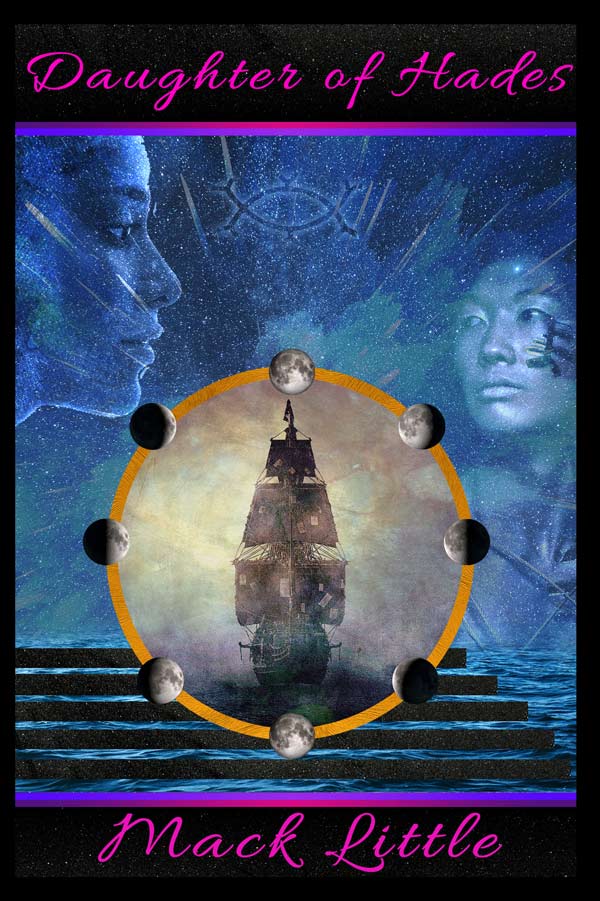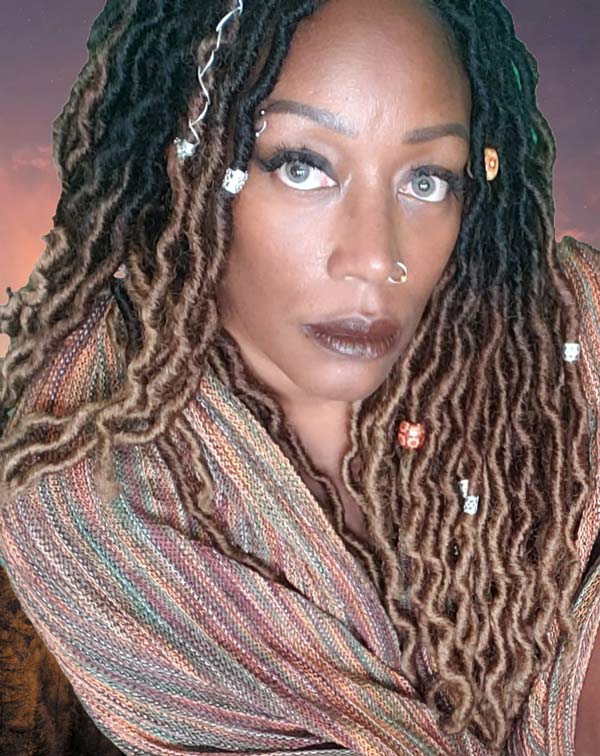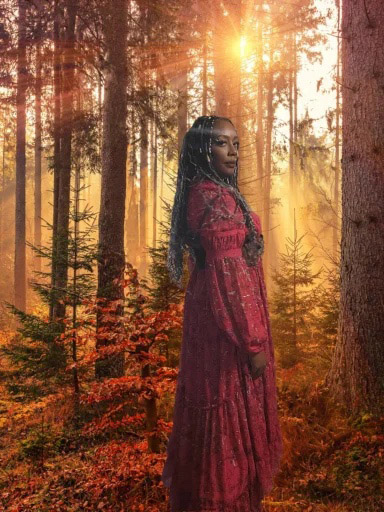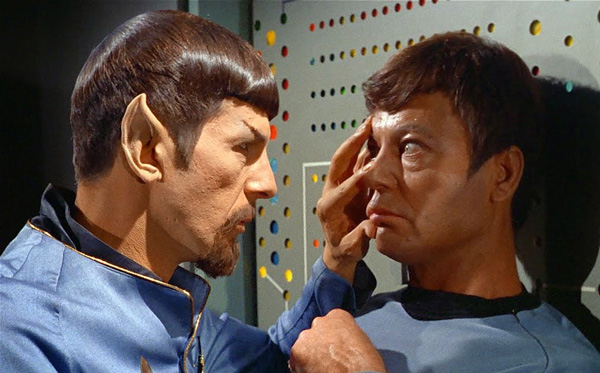I met Mack about four years ago through the Houston Writer’s Guild and promptly fell in love with her prose. I’ve reviewed her Daughter of Hades book on this blog. We both worked at Inkling Publishing’s table during Comicpalooza last year and I witnessed something I never expected. A young woman, I’m guessing 23, came up to Mack and asked for her autograph. The woman was so excited that she was bouncing up and down. That’s some fandoration. There was also the person cosplaying as Hell Girl who was hitting on Mack. No one bounced up and down while I signed a book and no one – not the obese Thor, not the Slave Leia, not the balding Superman, and definitely none of the Scarlet Witches – hit on me.
1. Daughter of Hades opens with a young woman fleeing from the aftermath of a rape. The rapist was a slave master in Barbados in 1649. Throughout the book you tackle some very tough subjects head on, and you do it without trying to force the reader to judge the scene from a modern moral and ethical perspective. How do you manage to do that and still weave a compelling and even poetic narrative?
I think character development is key. When composing the story, I try to become as familiar with each character as possible. Detailed character sheets help me to get a sense of the character’s past experiences, personality, desires, obstacles, etc. Tapping into what makes them human, makes their reactions and choices more relatable if not understandable. I believe each of us have the capacity for good and bad but our environment, upbringing, or even something in our biology influences how we respond and adapt. So, basically, I am putting myself and hopefully the reader in the character’s position when I write.
 2. Okay, true confessions time. I’ve fact checked some of the things in your novel. You have scenes all throughout the Caribbean and France. It all checks out. How do you go about your research? Have you learned anything that surprised you?
2. Okay, true confessions time. I’ve fact checked some of the things in your novel. You have scenes all throughout the Caribbean and France. It all checks out. How do you go about your research? Have you learned anything that surprised you?
Most of my research is by the seat of my pants. It’s done on the fly as I am writing the story. That usually has to do with the minutiae like what kind of fabric is used in clothes? How do people cook in the 17th century? Do they clean their teeth and how? Stuff like that. But when I am contriving a story, I start with a kernel of an idea, then I read history books, journal articles, Wikipedia pages about the subject and begin to figure out how I can insert my characters in historical events or how historical event would affect my characters’ journeys. So, I use research to help me determine the plot.
I think the most surprising thing I came across was same sex marriage in the 17th Century. The French, recognizing the shortage of females in the Caribbean and that the sailors might turn to one another for partnership and affection. They legalized a contract called a matelotage which allowed a same-sex civil union amongst sailors, in particular pirates, in the 17th and 18th century.
Another interesting thing I learned was the deep connection between maroons, self-liberated slaves. In fact, maroons were the first buccaneers. Later, maroons joined in attacks on plantations and raids of village. The maroons traded with buccaneers and joined their crews.
3. Your major characters are sensual and sexual. At times they struggle with their identities, and it feels very organic. Do you plan for LGBTQ characters, or is it something you realize as you write?
I don’t plan on LGBQ characters. Weirdly, the characters tell me who they are and who they love. As far as sexuality in Daughter of Hades, my characters exist on a spectrum where circumstances bring them together or tear them apart. The labels for sexual identity that we have today did not exist in the 17th century. So, I don’t use them in the book. I just show the characters’ connection to one another.
4. How many characters have you killed off? How did you know it was the right thing to do?
 Full disclosure, I have fridged characters to propel my story. I kill parent for this purpose. But I do struggle with killing off my characters. They become dear to me—even some of the antagonists. With some villains, however, I’d like to kill them, but I need to keep them around to torture my darlings.
Full disclosure, I have fridged characters to propel my story. I kill parent for this purpose. But I do struggle with killing off my characters. They become dear to me—even some of the antagonists. With some villains, however, I’d like to kill them, but I need to keep them around to torture my darlings.
5. Please describe the perfect setting for you when you write.
My perfect setting for writing is outdoors or anywhere I can enjoy a good cigar while I write. Since I’m not allowed to smoke inside, I sit on my terrace rain, shine, cold, or hot.
6. Tell us your approach to critique groups.
I find critique groups invaluable for my writing. My approach when receiving criticism is not to argue or explain unless expressly asked to do so. But I do ask advice. When critiquing, I always start by telling the author what I liked about their work, and I try to end with that too. Hearing only the criticisms tends to be discouraging and it also helpful to hear what you’re doing right so that you might continue that. When critiquing new writers or more inexperienced ones, I try to limit my critique to one or two things. Critiquing every single thing, I find, leaves the new writer feeling discouraged. Also, when I critique, I offer suggestions. I don’t waste time with typos. And I try very hard to listen to writing style and not alter it with my suggestions.
7. What’s the “secret sauce” in your writing?
I write long hand. When I look at a blank computer screen, I tend to freeze or I when I write, I can’t stop myself from editing as I go along and I never get anywhere. Writing long hand first frees me to just write and it gives me the material to work with for editing and research. After every long hand session, I type what I have written.
8. Star Trek or Star Wars?
Star Trek, definitely
9. Do you dream in color, or black-and-white? Do you remember your dreams?
I dream in color.
10. Which of your characters do you love the most? Which do you hate?
I am in love with Emmett Bazarab in my Scions of Darkness series. In general, I love all my characters though even the naughty ones.
Special Bonus Question for Mack:
11. What non-financial advice would you give to your 20-year-old self?
Don’t date John Spitznogle.
Next time I see Mack, I will definitely ask a follow-up question about this one.
You can contact Mack here and sign up for her newsletter.


